Can Dogs Get Depressed?: Nine Tell Tale Signs Your Dog Is Depressed or Unwell
Many still wonder if Dogs can ever be depressed or upset, especially when they are usually so bubbly and full of energy. The answer is YES, simply because animals have emotions too, and the Dogs’ reaction and behaviour when they are depressed or ill is strikingly similar to a Human. Things would have been so much easier if they had the ability to speak, wouldn't it? But alas, they can’t speak to us the way another person could.
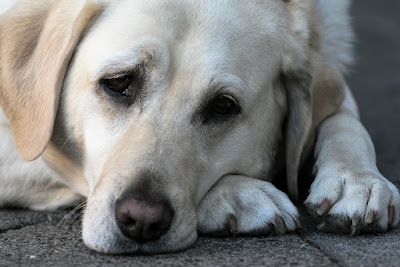 |
| Aww. |
Intrigued yet?
9 Signs To Tell If Your Dog Is Depressed or Unwell
Before you start sky
rocketing with anxiety on these possible signs, you should first take note of
monitoring any unusual behaviour, at least for a couple of days. Fret not, suggestions
to help fix these issues will also be included in this article, so hang on
tight and read on!
A Change In Appetite
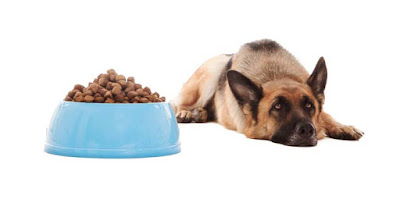 |
| Source |
A loss of appetite or
sudden weight loss is perhaps the clearest sign you could notice, especially if
your Pooch has always had a good appetite on regular days. This could be due to
illness or depression, some Dogs may do the opposite and overeat (like
stress-eating for Humans), because they seek the comfort in their own meals.
Bad Breath
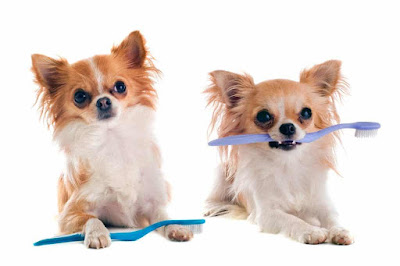 |
| Source |
If good Dental
hygiene is a common practice with your Doggo, and you have tried freshening
treats to curb the issue with no avail, the persistent sign of bad breath may
be due to mental or physical issues. For humans it may be lack of sleep or a
rotting tooth, and it’s along the same lines for our canine friends too.
Excessive Sleeping
 |
| Source |
Alright, it’s no
surprise that our Furkids love to sleep, in fact they have the luxury to sleep
whilst awaiting their Pawrents to be home from work. And they’d usually greet
you at the door with tails a-wagging when you’re back. So If you notice that
your Pooch is suddenly unaware of your “home-coming” or stops getting up to greet
you, there is something bothering them.
Licking Too Much
We are all aware of
how our furry companions lick themselves during a session of self-grooming, but
when experts say “too much”, they are referring to a Dog’s excessive licking or
chewing of their paws.
Think about a Human’s habit of chewing on their
fingernails due to anxiety or nervousness. Somehow a bad habit calms them down,
and for our Pooches, licking and chewing their paws soothes them from an underlined problem.
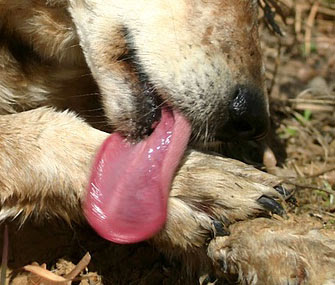 |
| Source |
Sudden
Another clear sign is
when your Pooch seems uninterested in activities that used to excite him/her, such
as playtime, taking walks and even at the sight of their favourite treats.
Stiffness
and being unable to move about (not due
to old age) is also included in this sign, something’s definitely got them
feeling all mopey.
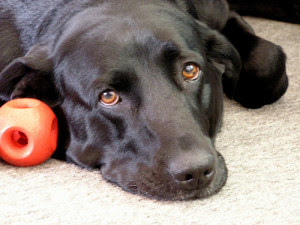 |
| Source |
Hiding And Avoiding
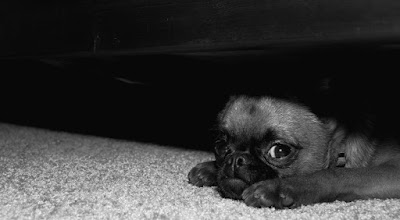 |
| Source |
Some of us like to be
left alone when we are sad or upset, similarly if you notice your Dog’s been
hiding away in a dark corner (i.e. under
the bed, in a closet), it is another indicator that your Dog might be
depressed, or is feeling ill.
Sudden Destructive Behaviour
 |
| Source |
When a well-behaved
Pooch starts portraying destructive behaviour and you find your furniture
chewed on or torn up, your Furkid is trying to tell you something! Sometimes,
they might display sudden aggression or whining and howling too, clearly,
something’s bothering him/her.
Restlessness
 |
| Source |
Excessive Shedding
 |
| Source |
Dogs that do shed naturally
on a regular basis shed in different amounts according to the type of breed, so
if you realise the amount of hair that has been shed is much more than usual or
if you notice bald patches, it could be a sign of depression, if nothing internal.
Yep, like how some of us may bald due to stress!
What You Can Do
Firstly, as we’ve
mentioned at the start, you should monitor and understand your Doggo’s
behaviour, so if any of these signs start surfacing out of the blue, you can
determine that it is not normal.
Visit The Vet
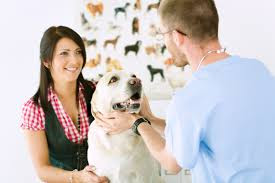 |
| Source |
To be absolutely
sure, bring your Pooch to your trusted Veterinarian to seek professional help.
With a thorough checkup to ensure that these behaviours are not due to any underlying
medical issues. After all, we have no other ways to be certain of issues that
are internal.
Was It Something Else?
 |
| Source |
If your Dog checks
out completely fine after a visit to the Veterinary Clinic, then start thinking
back on the possible events recently that may have triggered your Furkid’s
depression. Such events could be:
Change of environment – a sudden switch could be unfamiliar and
scary for our canine pals, they would require some time to adapt to a new space
altogether.
Losing a companion – Dogs are sensitive creatures, the passing of someone
or another pet can most certainly bring about depression in your Pooch. Think
about the numerous video examples or loyal Dogs that still mourn for their
owners, long after their passing!
A new family member – if you have recently gotten a new Pet or had
a baby, you might have unknowingly paid less attention to your existing Furbaby.
An abrupt lack of attention could impact them too. This could also be applied
to a sudden change of schedule in your life.
Suggestions To Fix It
Spend more time with
your canine companion, praise and encourage them on positive behaviour when
they do portray them. Avoid negative reactions and reprimanding as our Pooches
may accept them wrongly.
It is also advised that more socialisation and outings
could help improve the situations, along with routine schedules for meals,
walking and playtime. This aids in helping the Doggo feel a sense of assurance
and security ☺
 |
| Source |
If All Else Fails
In some
severe cases, these little tips cannot help a Dog overcome his/her depression,
and in this case, it’s recommended that you make a trip back to the Vet. In
which proper medication like anti-depressants should be prescribed.
Good news
is, most Doggies eventually snap out of their depression after a few months of
medication, so be patient and remember to shower them with lots and lots of
warmth, support and love!
 |
| Source |
Notes
This
article was written with informational purposes, as you know, we’d love to
share our collective research and experiences as fellow Pet owners. It is not
meant to alternate in any way as advice or diagnosis of Professionals. What’s
most important is better understanding our precious Pets, indefinitely! Learn more about their other behaviours here! ☺
You might also be interested in:
Your Stories Can Be Heard Too
Have YOU tried any of these services? Your voices are important to us and the Pets community! Our readers are encouraged to share their Pet-related reviews of a place and its services, experiences, even lifestyle tips and tricks to better our Pets lives, on our platform, one paw at a time. Be a part of an educational and informative Pets community because at ThePetsDialogue, your voices could make a huge difference on a global scale.
Write to us at [email protected] today!
Our website is a work in progress, however, if you did find our articles interesting please do feel free to share! For more Pet care tips and other Pet-related articles, head to www.thepetsdialogue.com ☺
Disclaimer
This article was written with informational purposes, as you know, we’d love to share our collective research and experiences as fellow Pet owners and lovers. It is not meant to alternate in any way as advice or diagnosis of Professionals.
ThePetsDialogue claims no credit for images posted on this article unless otherwise displayed/stated. All rights go to respective owners as mentioned. If you do not wish for your image(s) to appear here do drop us an e-mail and it will be removed promptly. If you do wish to use any of our original published information, you are welcome to contact us!





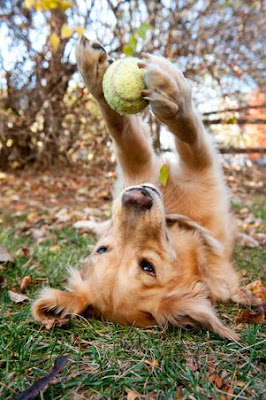
No comments:
Post a Comment